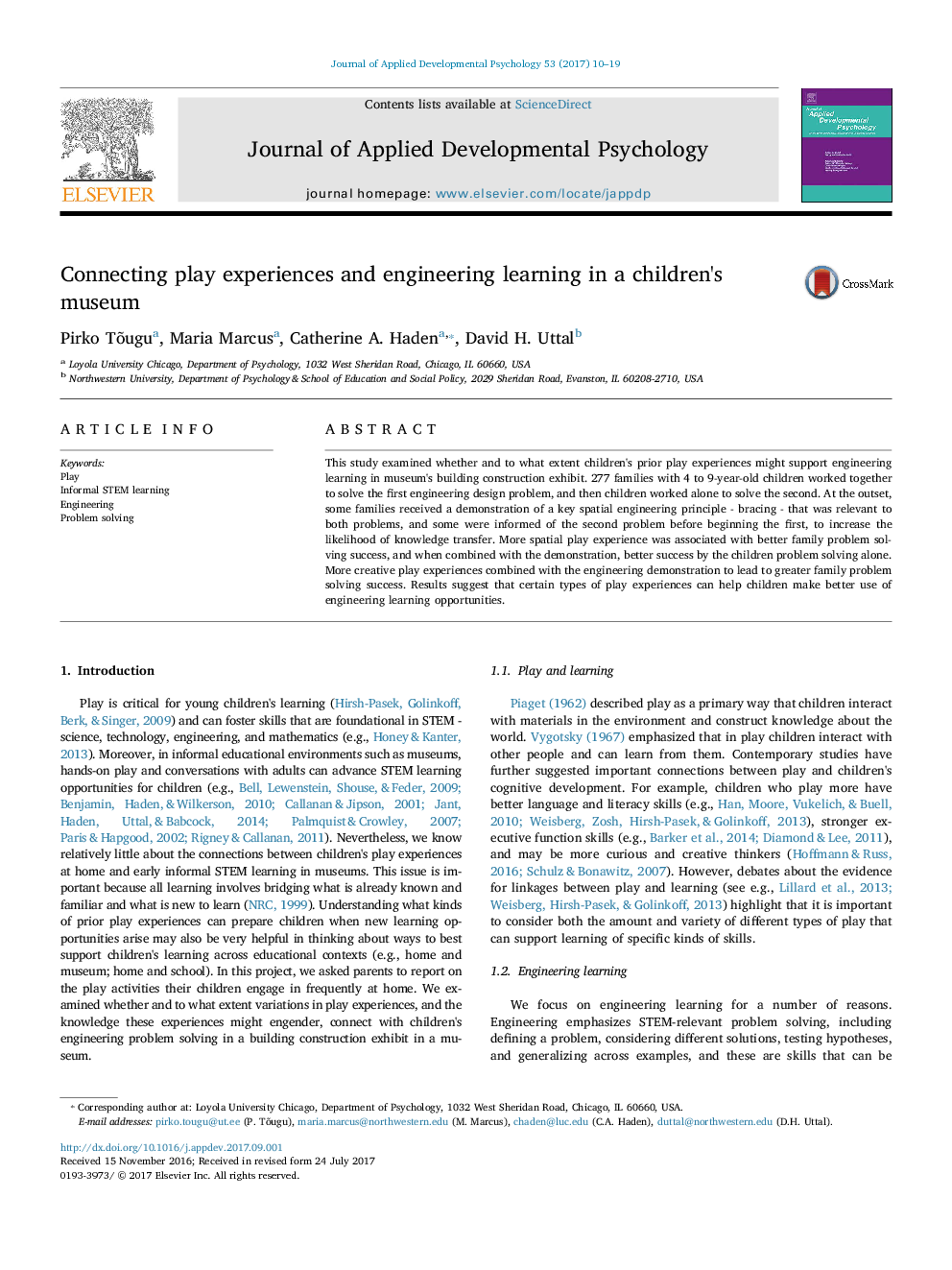ترجمه فارسی عنوان مقاله
اتصال تجربه های بازی و یادگیری مهندسی در موزه کودکان
عنوان انگلیسی
Connecting play experiences and engineering learning in a children's museum
| کد مقاله | سال انتشار | تعداد صفحات مقاله انگلیسی |
|---|---|---|
| 138997 | 2017 | 10 صفحه PDF |
منبع

Publisher : Elsevier - Science Direct (الزویر - ساینس دایرکت)
Journal : Journal of Applied Developmental Psychology, Volume 53, November 2017, Pages 10-19
ترجمه چکیده
این مطالعه مورد بررسی قرار گرفت که آیا تا کنون کودکان تجربیات بازی قبلی ممکن است از یادگیری مهندسی در نمایشگاه ساختمان موزه حمایت کنند. 277 خانواده با کودکان 4 تا 9 ساله برای حل اولین مشکل طراحی مهندسی با یکدیگر کار کردند و پس از آن کودکان تنها برای حل دوم کار کردند. در ابتدا، برخی از خانواده ها تظاهراتی از یک اصل مهندسی فضایی - تسلیحاتی - که مربوط به هر دو مشکل بود، دریافت کردند و برخی از آنها قبل از شروع به اولین مشکل مشکوک شدند تا احتمال انتقال دانش را افزایش دهند. تجربه بازی فضایی بیشتر با موفقیت موفقیت در حل مسائل خانواده همراه بود، و هنگامی که با تظاهرات همراه بود، موفقیت بهتری از طریق حل مسئله کودکان تنها بود. بیشتر تجربیات بازی همراه با تظاهرات مهندسی به منجر به موفقیت بیشتر خانواده حل مشکلات. نتایج نشان می دهد که نوع خاصی از تجربیات بازی می تواند به کودکان کمک کند تا از فرصت های یادگیری مهندسی بهتر استفاده کنند.

